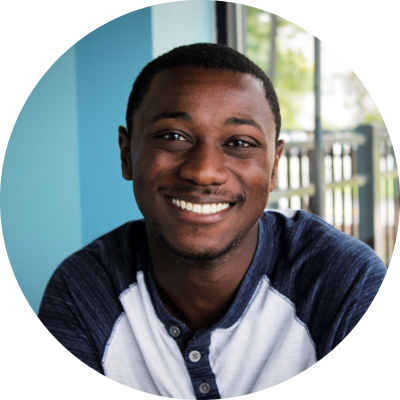Deacon Spotlight: LB Snipes
LB Snipes (BA 2018 in Psychology, Neuroscience Minor; MA in Counseling 2021)
Professional School Counselor (High School) with Charlotte-Mecklenburg Schools

Tell us about your current job role/employer and what you’re currently working on.
I currently work as a high school counselor for one of the largest high schools in the state of North Carolina. As a school counselor, I work with students and families from all walks of life and backgrounds. From connecting students to academic resources (i.e., tutoring, pre-college programs, and internships) to community resources (i.e., mental health, food resources, and crisis assistance) to success planning, I work with my 9th-12th grade students create the best plan to be successful after high school graduation. More recently, I have been practicing various academic and social words and phrases to best accommodate the families who are new to the school and English is their secondary or tertiary language.
What personal and/or career experiences did you have prior to landing your current job and leading to where you are now?
I have worked in various school settings, including a K-8 school and a high school in Winston-Salem during my graduate studies. Because of the pandemic, these experiences helped to me recognize the many disparities that go unnoticed in K-12 education and how I can be a more impactful advocate for students and families.
What was the most challenging aspect of your first “real world job” and what did you learn from it?
Having students return to the classroom after a year-and-a-half (or longer) of being remote left many families in a rut. Many students grew comfortable being at home and not being held appropriately accountable for their work. Rising 9th and 10th grade students did not have a true middle school experience and most of them did not appropriately progress through that developmental stage. As a beginning school counselor, this left me wearing more hats than expected, counseling teachers, administrators, parents, and students, validating their experiences while also trying to get everyone back on the saddle to be successful.
What advice would you give to new Wake Forest graduates about developing their personal life habits after college (finances, health, values, work/life balance)?
Seek feedback and embrace it! You don’t know what you don’t know, so don’t be too ashamed, prideful or embarrassed to ask a colleague or supervisor what you can do to enhance your craft. Each industry is similar with nuanced ways of getting tasks done, so learn the various ways you can use your skills and knowledge to positively influence your work experience while also gaining new skills. And, make sure to take breaks — when you clock out, STAY CLOCKED OUT! That email that came in during your personal time can wait until you clock back in the next day. Spend your time with friends, family, and/or colleagues going out to eat, seeing a performance at the local theater, going to a sporting event, or even engaging in that community event in the park.
How have you made personal and professional relationships in your city, company, or community?
Charlotte is home for me, so it was not too hard, but still a bit of work. Several of my colleagues are members of the Divine 9, so we have been able to connect on our experiences while in undergrad and opportunities to connect with other D9 members in the area. I also work with a great team of school counselors that play just as hard as they work! Taking a genuine interest in the people I work with has allowed us to be our authentic selves while at work. Being intentional about getting to know my colleagues and the families of my students not only makes work feel less like work, but it also brings a sense of community to my day-to-day.
Have you been mentored by anyone at Wake Forest or in your professional life? If so, what impact has that relationship had on you?
I am grateful for my job for establishing a mentorship program for new hires. One of my mentors happens to also be in the same fraternity as me, so that helped us connect on more than just work-related concerns. He has helped me to recognize where my strengths were and what my growth areas are, especially when it came to recognizing when I have hit my wall and need to take a step back.
What advice would you give to current Wake Forest students and/or young alumni who are about to start their first professional job?
Breathe. Everything will work out. It can be hard to drown out the noise of your parents, friends, peers, professors, etc. telling you how to move and what is right for you. Only you know what is right for you and you shouldn’t try to live someone else’s aspirations, especially if it goes well outside of your means. Learn something from each experience you have on life’s journey, take time to reflect on those experiences, and continue to follow your arrow wherever it points.
What are your future career goals or plans? How are you being intentional about working towards them?
I am going to continue as a school counselor for the next 3-4 years before I go back to school for a PhD in Counselor Education & Supervision. The time I am spending now will help me to grow as a culturally competent counselor and hopefully I will be a mentor for the next generation of school counselors.
Story published in April 2023. For current updates on LB’s career path, visit his LinkedIn profile.
